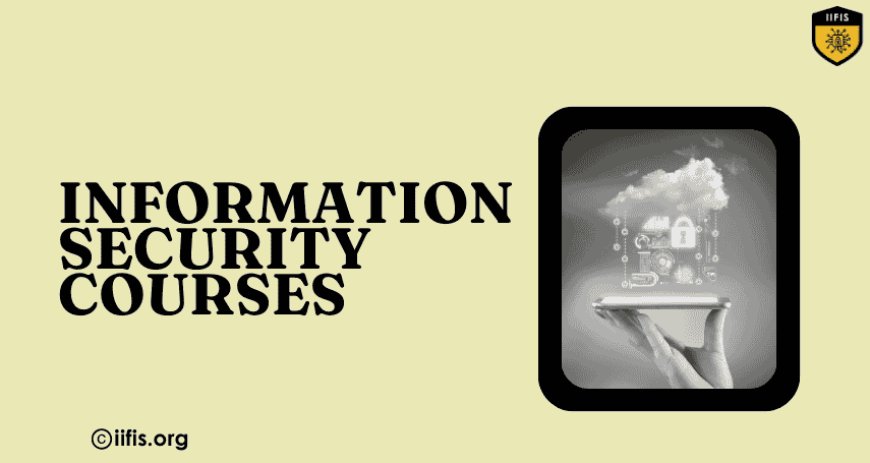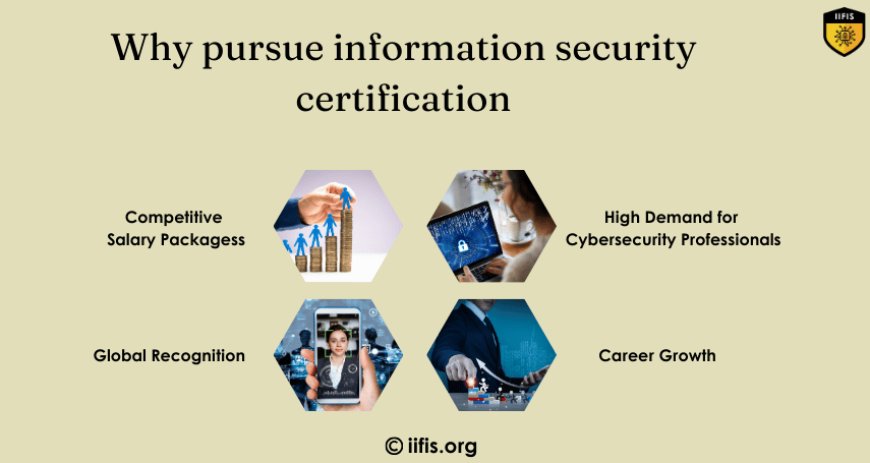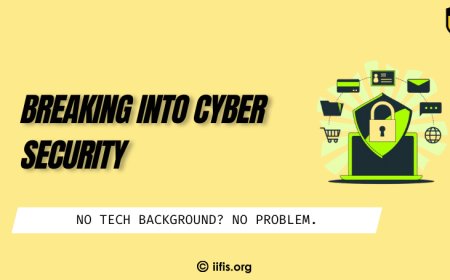Essential Information Security Courses for a Secure Future
Explore key information security courses to develop skills and advance your career in the growing field of cybersecurity.

After completing information security courses, I gained essential skills to protect data, advance my career, and secure networks effectively. As businesses and personal information shift online, the need for skilled cybersecurity professionals is increasing quickly. Gaining the right knowledge and certifications through information security courses is crucial for anyone looking to pursue a career in this field or enhance their current skills.
From my experience, these courses provide the foundation needed to understand various aspects of cybersecurity, such as ethical hacking, network security, and incident response. With the right training, you'll be equipped to meet the growing demand for security experts in a field that continues to expand and evolve. Whether you're starting fresh or advancing in your career, an information security certification can open doors to valuable opportunities and a secure future.
Why Get an Information Security Certification?
Earning an information security certification is an excellent way to establish your credibility in the cybersecurity domain. The certification validates your expertise and knowledge in identifying, preventing, and responding to security risks. Moreover, it demonstrates your commitment to safeguarding data and systems, which is crucial for employers looking for skilled professionals to protect their infrastructure from cyber threats.
An information security certification not only enhances your skill set but also increases your earning potential. The growing frequency of cyberattacks across industries means there is a rising demand for qualified cybersecurity professionals. Certification opens up career opportunities and provides a competitive cyberattack market.
Key Topics in Information Security Certification Courses
When pursuing an information security course, there are several critical topics you will learn to ensure that you're equipped to tackle various security challenges:
-
Cybersecurity Fundamentals: Basic principles of cybersecurity, including risk management, security policies, and procedures.
-
Network Security: Techniques to secure network infrastructures from unauthorized access and potential attacks.
-
Cryptography: The art of encrypting and decrypting information to ensure privacy and confidentiality.
-
Incident Response and Recovery: How to handle data breaches and recover from security incidents efficiently.
-
Ethical Hacking: Techniques to test and assess the security of networks and systems by simulating attacks.
-
Security Governance and Compliance: Understanding regulatory frameworks and policies to ensure compliance with laws like GDPR, HIPAA, etc.
-
Risk Assessment and Management: Identifying, evaluating, and mitigating security risks within an organization.
-
Cloud Security: Securing data and applications in the cloud environment is a crucial area as more businesses migrate to cloud services.
Types of Information Security Certifications in India
India has become one of the biggest cybersecurity hubs due to the rise in tech companies and startups. As a result, numerous certification programs are available for aspiring security professionals. Here are some of the top information security certifications in India:
-
Certified Information Security Professional Level 1: This foundational certification focuses on building essential skills to identify and address basic security threats and vulnerabilities.
-
Certified Information Security Professional Level 2: A more advanced certification that delves deeper into designing, implementing, and managing comprehensive security programs for organizations.
-
Certified Information Security Analyst: This certification is ideal for professionals focused on analyzing and responding to security incidents, as well as managing risk and compliance.
-
Certified Information Security Expert: Aimed at experts in the field, this certification equips professionals with advanced knowledge in areas like penetration testing, forensics, and risk management.
-
CompTIA Security+: A beginner-friendly certification, CompTIA Security+ is ideal for those starting their journey in the field of cybersecurity.
-
Cisco Certified CyberOps Associate: A certification for professionals focused on security operations, covering areas like incident response and security monitoring.
Choosing the Right Information Security Course in India
Choosing the right information security course is essential for building a strong foundation in cybersecurity. When selecting a course, consider the following factors:
-
Reputation of the Institute: Look for institutions that are well-known for their expertise in cybersecurity education.
-
Course Curriculum: Ensure that the course covers a comprehensive curriculum that includes all the key topics in information security.
-
Hands-On Training: Practical experience is essential, so choose a course that offers lab sessions, real-world simulations, and projects.
-
Certification Outcome: Ensure that the course offers certification programs recognized by the industry, such as CISSP, CEH, and others.
-
Industry Collaboration: Institutes that collaborate with industry leaders provide opportunities for internships, real-time exposure, and networking.
Career Paths After Information Security Certification
With an information security certification, a wide array of career opportunities are available. Some common career paths include:
-
Cybersecurity Analyst: Responsible for protecting networks, systems, and sensitive information from cyber threats.
-
Security Consultant: Offers advice on how to protect an organization's IT infrastructure from potential attacks.
-
Network Security Engineer: Focuses on securing network systems and preventing unauthorized access.
-
Penetration Tester: Also known as ethical hackers, they simulate cyberattacks to identify vulnerabilities in systems.
-
Chief Information Security Officer (CISO): A leadership role that oversees the entire cybersecurity strategy within an organization.
-
Security Operations Center (SOC) Analyst: Monitors security systems in real-time to detect and respond to potential security incidents.
Why pursue information security certification in India?
India has seen a sharp rise in digital transformation, which has increased the demand for cybersecurity professionals. Pursuing an information security certification in India offers several advantages:
-
High Demand for Cybersecurity Professionals: With the rapid growth of online platforms and digital transactions, businesses are investing more in cybersecurity.
-
Competitive Salary Packages: Information security experts are among the highest-paid professionals in the tech industry.
-
Global Recognition: Many certification programs, such as CISSP and CEH, are globally recognized, enabling you to work internationally.
-
Career Growth: With continuous advancements in cyber threats and technologies, there are abundant opportunities for career growth and specialization.

Information Security Courses in India for Career Success
Several leading educational institutions in India offer specialized information security courses that equip students with the knowledge and skills to succeed in the cybersecurity field. These institutions offer both online and classroom-based training programs, providing flexibility for working professionals and full-time students.
For example:
-
Indian School of Ethical Hacking (ISOEH) offers various cybersecurity and ethical hacking programs.
-
Institutes like IIFIS offer structured certification focused on networking, cybersecurity, and ethical hacking.
What You’ll Learn in an Information Security Course
In an information security course, you will acquire both theoretical knowledge and practical skills. Key takeaways include:
-
Mastery in identifying and managing cybersecurity threats.
-
Hands-on experience with the latest security tools and technologies.
-
Proficiency in implementing security protocols, risk management, and compliance strategies.
-
Understanding of ethical hacking and penetration testing techniques.
-
Skills to ensure the security of enterprise networks, databases, and cloud systems.
Choosing the Right Information Security Course
When selecting a course, it’s important to consider your career goals and the specific area of information security you wish to specialize in. Whether you're looking to pursue ethical hacking, network security, or risk management, there is a wide range of courses tailored to different needs. Focus on accredited and industry-recognized courses to ensure you're getting the best education.
As cyber threats keep growing, there is a huge demand for skilled information security professionals. Earning the right certifications opens up many career opportunities in cybersecurity. Whether you're just beginning or looking to take your career to the next level, information security courses provide the knowledge and skills you need for a successful future. Start your journey today and help make the digital world a safer place for everyone.























